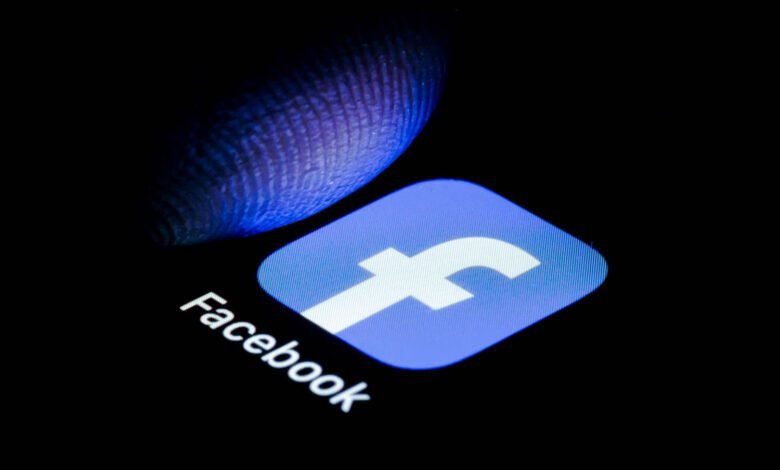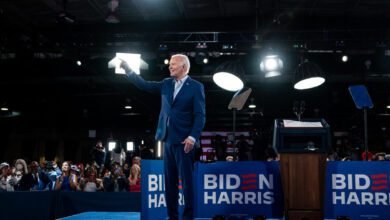Study analyzes how Instagram and Facebook outages affect politics

Facebook and Instagram may not have the impact on popular politics that some critics fear.
A study published Monday by researchers at Stanford University, Meta and other institutions found that a subset of 35,000 people who took breaks from Facebook and Instagram for six weeks before the 2020 presidential election did not significantly change their policies at the time of the election. election. .
The researchers found that staying away from the two social media apps, both part of parent company Meta, had almost no effect – at least in the short term – on how people viewed the candidates, whether they showed up to vote, and how they perceived their legitimacy. of the election.
But the researchers also found that staying away from Facebook, in particular, was a double-edged sword for understanding the world: Those who deactivated the app appear to be less likely to believe election misinformation, but also less likely to have knowledge about general news. .
The research, published in the Proceedings of the National Academy of Sciences, is part of a broader study that tries to understand how social networks affect democracy. Under criticism for years for changing the way campaigns are run and the way voters consume information, Meta formed a partnership with academics to grant them access to data held by the company. College professors maintain control over what they report. In the latest study, the authors stated that Meta paid the research costs, but did not pay the researchers or their institutions.
Meta said in a statement Monday: “These findings are consistent with previous publications of this study showing little impact on key political attitudes, beliefs or behaviors.” An earlier set of findings published in July concluded that Facebook had “significant ideological segregation” and that conservative sources dominated its news ecosystem.
Academic researchers and social media users have been eager to understand, for example, whether so-called filter bubbles exist and, if so, what the practical effects are. Social media has been repeatedly accused of “ruining political discourse,” spreading falsehoods and worsening polarization, and research into these issues is relatively recent.
Co-author of the latest study, Stanford economist Matthew Gentzkow, said one of the study’s findings was how little impact Facebook and Instagram seemed to have on polarization and division.
“If we’re worried about these things, trying to control what people see on social media and whether they’re on social media may not be the most important lever,” he said in an interview.
On issues like immigration, mask requirements and policing, those who have deactivated Facebook and Instagram have remained polarized.
But Gentzkow also said the study is nowhere near the final word on the matter because it was limited to the impact of Facebook and Instagram in a relatively narrow six-week period.
“This study cannot say one way or the other – in the sense of a decade – whether social media is causing polarization or not,” he said.
The researchers found a small, unverified impact of Facebook usage favoring Donald Trump, in which people who deactivated Facebook were slightly more likely than others to vote for Joe Biden – equivalent to 1.3% of Trump voters switching for Biden. This may have been because the Trump campaign was using Facebook more effectively or possibly due to other factors, the researchers wrote. In any case, they wrote, the difference “applies to the specific population selected for our experiment” and “cannot be extrapolated to the broader population without strong assumptions.”
The study calls itself the “largest-scale evidence available to date on the effect of access to Facebook and Instagram on political knowledge, attitudes, and behavior in a presidential election season.” Lists 32 co-authors from 14 institutions.
Researchers did not look at the role of Facebook and Instagram after Election Day, when some Trump supporters used them to promote claims about voter fraud and the company fought to drop the allegations.
Meta worked with researchers to find participants, placing invites in people’s feeds in August and September 2020. And participation came with a financial incentive: $25 each for people who agreed to opt out for a week, and $150 for people disable for six weeks.
It’s not the first study to ask what life is like for people who aren’t on social media. A study published in 2018, amid an online boycott called #DeleteFacebook, said that “the average Facebook user would demand more than $1,000 to deactivate their account for a year.”
And in a 2019 study, Gentzkow and other researchers found that deactivating Facebook for four weeks before the 2018 midterm elections had a variety of real-world implications, including increasing self-reported happiness, reducing factual knowledge of news and the reduction of political polarization. Gentzkow said more research would be needed to explore why that study showed reduced polarization but the most recent one did not.




